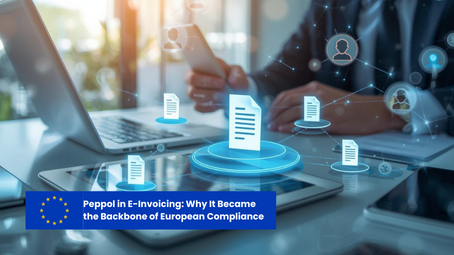Croatia’s New Fiscalization Law: Transition to Digital Tax Processes Projekt Fiskalizacija 2.0 / eRačun
- Melasoft

- Jul 27, 2025
- 2 min read

Introduction
Croatia is taking significant steps toward improving the efficiency of its tax inspection processes in the digital world. Starting in 2025, mandatory e-invoicing and e-reporting systems for businesses will mark a major shift in the country’s tax processes. These new regulations will ensure that commerce becomes more transparent, faster, and traceable, making it easier for businesses to meet their tax obligations.
The E-Fiscalization Process in Croatia
Croatia began implementing e-invoicing in 2019 for transactions with the public sector (B2G). This move allowed the tax administration to verify transactions faster and more efficiently in the digital space. By 2025, this system will expand to include business-to-business (B2B) and business-to-consumer (B2C) transactions, marking a significant digital transformation in the country’s tax reporting.
At the heart of this transformation is the new Fiscalization Law, which was approved on June 13, 2025, and will take effect on September 1, 2025. Known as "Fiscalization 2.0", this law reshapes the invoicing and reporting processes in Croatia. The changes will ensure businesses can report their tax obligations in a more accurate, faster, and transparent manner.
Key Features of the New Fiscalization Law
Under the new law, businesses will be required to issue electronic invoices (e-invoices) and report them to the tax administration. The law mandates both issuers and recipients to report data such as payment status, bank details, and product codes, ensuring that tax reporting is streamlined and efficient.
E-invoices must comply with the European Standard EN 16931 and follow specific technical specifications set by the Croatian Tax Administration. The invoices will be exchanged through secure "access points" to ensure standardization and system interoperability.
Implementation Timeline
The implementation of the new system will occur in phases:
September 1, 2025: Testing environments for e-invoicing will be available for B2B and B2G transactions. Businesses can begin integrating and testing their systems with the Tax Administration platform.
January 1, 2026: All VAT-registered businesses will be required to issue and receive e-invoices for B2B and B2G transactions. These businesses will also start submitting reports to the fiscalization system.
January 1, 2026: B2C transactions will fall under the scope of the e-reporting system. This means that all B2C transactions, regardless of the payment method, will need to be reported.
January 1, 2027: Non-VAT-registered businesses, income and profit taxpayers, and public entities will be required to issue only e-invoices and report them to the system.
What is E-Reporting and How Does It Work?
E-reporting refers to the process of reporting business transactions in a digital format. This process, which is mandatory for B2B and B2G transactions in Croatia, requires both the issuer and the recipient of invoices to report their data. The e-reporting process consists of three main stages:
New Invoice Reporting: When a new invoice is issued or received, the invoice data is immediately transmitted to the tax administration for verification.
Payment Reporting: When the recipient pays the invoice, payment details such as amount, method, and date are reported to the tax administration.
Invoice Rejection Reporting: If the recipient rejects the invoice, this must be reported to the tax administration, including the reasons for rejection.
Invoice Delivery Reporting: When goods are delivered without an e-invoice, it must be reported.
These processes ensure that tax inspections are faster, more accurate, and complete. Businesses will be required to continuously send accurate data to the tax administration, helping to minimize tax evasion.
Advantages of E-Invoicing and E-Reporting
The introduction of the e-invoicing and e-reporting systems in Croatia brings several benefits for businesses and the government, making the transition to digital tax processes more effective. These advantages include:
Transparency and Traceability: Every transaction is recorded digitally, allowing the tax administration to trace and monitor them. This increased transparency helps to prevent tax evasion.
Faster Tax Inspections: The tax administration can instantly verify transaction data, speeding up the tax inspection process. This means businesses will be less impacted by tax audits.
Digitization and Efficiency: Digital invoicing and reporting processes are much faster and more efficient compared to paper-based systems. This saves businesses time and improves productivity.
Lower Costs: The use of digital solutions reduces costs compared to paper-based reporting and decreases bureaucratic processes, ultimately lowering operational expenses for businesses.
Reduced Errors: Human error is minimized in digital systems. Automated e-reporting increases the accuracy of tax filings, ensuring fewer mistakes.
Conclusion
Croatia’s new Fiscalization Law represents a significant step toward the modernization and digitalization of tax processes. The new regulations will help businesses manage their tax obligations faster, more efficiently, and more accurately.
As Croatia transitions to a fully digital tax system, businesses will benefit from simplified reporting processes, reduced costs, and increased transparency. This shift will not only help businesses comply with tax regulations but also reduce tax losses and enhance the overall efficiency of the country’s tax administration.
As Melasoft, a leading software company providing international e-compliance solutions, we fully understand how crucial it is for businesses to comply with digital tax regulations. With our in-depth experience in SAP Add-on solutions and portal solutions, we ensure that our clients can quickly and seamlessly adapt to the new fiscalization laws.
Our tailored solutions help businesses integrate smoothly with e-invoicing and e-reporting requirements. This not only facilitates compliance with the Fiscalization 2.0 law but also makes tax reporting processes faster, more accurate, and more transparent.
By partnering with us, you can accelerate your transition to digital tax processes, reduce operational costs, and minimize error risks. With Melasoft, you won’t just adapt to change, you’ll lead it, staying a step ahead in the evolving regulatory landscape.





Comments